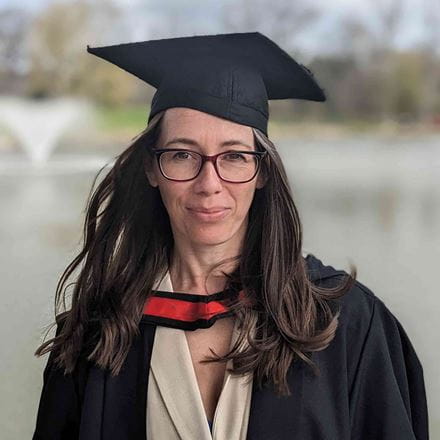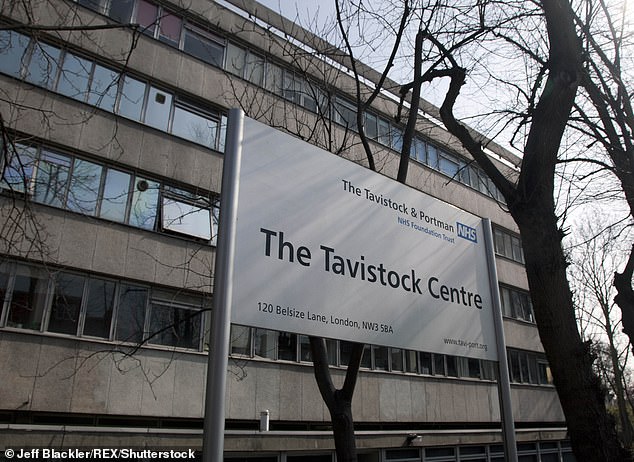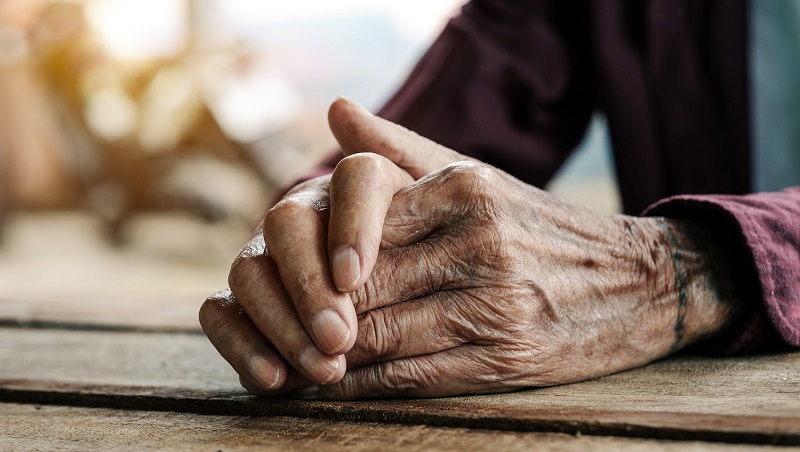Career prospects
Giving you the skills to help others overcome
Isolation, fear, loss and uncertainty; the post-pandemic world presents a serious challenge to our collective consciousness. Overcoming these difficulties could be the biggest test of our generation.
How do we care for the most vulnerable in society? What can we do to ensure good access to mental health care? How can we support our refugee community? How does increased remote working impact organisations and the dynamics of the workplace? How do rapid technological advancements affect us?
A degree from the Department of Psychosocial and Psychoanalytic Studies will give you the answers and the tools to help.
Which jobs will suit me?
- A counsellor, social worker, teacher, therapist, manager, organisational consultant or youth worker; these are just a few of the diverse career paths a degree from the Department could lead to.
- You could also continue your education with us in readiness for employment in clinical practice, non-governmental organisation work or business and organisational consultancy. Your advanced skill set will be highly valued by public and private mental health and social care providers, the third sector and large corporations and organisations.
- Past students of the Department have graduated into a range of successful jobs in fields such as; social care, psychotherapy and counselling, teaching, charity and third sector roles, business, management and clinical therapeutic practice. 92% of our social sciences postgraduates are in employment or further study (Graduate Outcomes 2024).
- Many of our students have launched their own businesses and social enterprises, such as nature-based psychodynamic psychotherapy for children and young people or opening their own psychotherapy and counselling practices.
How will a degree from the Department benefit my future career prospects?
Which employers will value my degree?
The need for skilled professionals working in people-focused roles has become more critical than ever. Learning to understand and adapt to the unprecedented changes taking place within our society is key to supporting community and mental well-being. Those who can assist will be uniquely placed to help us overcome this challenge.
A degree from the Department of Psychosocial and Psychoanalytic Studies will prepare you for careers in fields such as:
- Public and private therapeutic practice
- Teaching
- Social work
- Residential care
- Law
- Leadership and management roles
- Academia
- Third sector and non-governmental organisations
- Entrepreneurial roles
The sectors listed above are just a few examples of the pathways that a degree from the Department can lead to. Employers are often looking for a degree level qualification rather than anything subject-specific, so there is no need to limit yourself to the roles listed above. The skills you will develop during your time at Essex will enable you to pursue a wide range of potential career paths.
Which skills will I develop in readiness for the workplace?
At Essex you will be immersed in a unique programme of study, designed to prepare you for working with a diverse range of people and in a multitude of contexts. Graduates of the Department will find their skill set highly sought after by employers looking to support individuals and organisations as we adapt and respond to the ever-changing world.
A degree from the Department of Psychosocial and Psychoanalytic Studies will help you to develop:
- Listening skills; the ability to receive, interpret and understand messages as part of the communication process
- Critical thinking skills; understanding and exploring complex theories and ideas
- People skills; learning to empathise with and accept the lived experience and ideas of others, developing emotional intelligence
- Communication skills; discussing and sharing in a supportive, patient and understanding manner, presenting ideas
- Written skills; ensuring you are able to articulate your own thoughts in a clear and considered style
- Problem solving skills; finding solutions to challenging situations
How will my degree help me to succeed in a challenging jobs market?
According to the NHS, one in four of us will experience mental health problems throughout our lifetime, and mental illness is the single largest cause of disability. As the fallout from the global pandemic continues, the true cost to the wellbeing of individuals, communities and the economy is yet to be revealed. Fortunately, there is now good evidence that tackling some major mental health problems early reduces subsequent problems, improves people’s life chances, and saves money for the wider economy.
Today's students of Psychosocial and Psychoanalytic Studies will develop unique and valuable skills which will ensure they are well placed to find employment. From health and social care, to big business, education and migration; the need for trained graduates working in these areas is now more crucial than ever.
The Department of Psychosocial and Psychoanalytic Studies offers you the chance to study a distinctive range of courses and modules in areas such as refugee care, childhood studies, psychodynamic counselling, gender and sexuality studeis and organisational dynamics. You will have the chance to learn how to support and understand the needs of individuals across all age ranges and from diverse backgrounds. The courses are designed to enable you to tailor your study around areas most closely aligned with your career goals, ensuring you graduate with specific knowledge and experience in readiness for the workplace.
How will the Department support my career development?
Events and workshops with employers
The Department hosts regular employability events for all of our students, events include:
- "Ask the Counsellor"
- "Early Years Education opportunities"
- "How to become an Entrepreneur"
Alumni Events
The Department hosts bespoke events for our alumni, these give you the opportunity to network and re-connect with other graduates and staff once you have graduated from Essex.
What about opportunities for further study?
Are you considering a career in clinical practice, business and management or even refugee care? Our unique Masters level courses offer you a qualification which enables you to begin working at an advanced level in your chosen field. Don't have an undergraduate degree in a related area of study? Don't worry - students with a degree in unrelated disciplines will also be considered for further study with us, subject to meeting entry requirements.
Browse our full list of Masters level courses to find your advanced area of study:
Funding your further study:
Students of the Department can benefit from a number of scholarships and funding opportunities. To view the very latest opportunities, please visit our scholarships and funding page.
What support can I expect to receive after I graduate?
The Department of Psychosocial and Psychoanalytic Studies provides a supportive and nurturing environment for students, researchers and staff alike. Whether you have just left home - from the UK or abroad - or you find yourself returning to education as a mature student. Your time with us will foster a network of support as you work alongside experienced and respected academics and practitioners working in the field today.
But this network of support doesn't disappear after graduation. Our lively social media presence and Departmental newsletter ensures our graduates stay in touch with us and each other, whilst staying up to date with the very latest thinking from the Department. You will also be welcome to attend the many events, open seminars and continuous professional development courses offered by the Department as you pursue your career post-graduation.
Once you have graduated, all Essex alumni are able to access a lifetime of career support from the University. From help with hunting for your perfect job, to support transitioning from one career to another, the Career Services team are always on hand to help you at any point in your life after Essex. Visit the Career Services page to learn more about how we support graduates throughout their lifetime:
The University also hosts an incredibly vibrant alumni network. This community is open to all graduates of Essex and will provide you with exclusive membership for a lifetime, discounts, networking events and much more:
![A portrait of Apostoulos Fournaris.]() "I was accepted at the Tavistock Centre where I trained for a year in Adult Psychoanalytic Psychotherapy. I also worked as an Assistant Psychologist at a forensic clinic... I then set up my own mental health company..."
"I was accepted at the Tavistock Centre where I trained for a year in Adult Psychoanalytic Psychotherapy. I also worked as an Assistant Psychologist at a forensic clinic... I then set up my own mental health company..."
Learn more about Apostolos' career as a Director of a mental health company
Apostolos Fournaris, MA Psychoanalytic Studies, MA in Psychodynamic Counselling, PhDc in Psychoanalytic Studies, University of Essex
Why did you decide to study your course at Essex?
At first, what was then the Centre for Psychoanalytic Studies was a leading institution for Psychoanalytic Studies so it was appealing to gain a postgraduate degree taught by such experts in the field. After that, I just fell in love with Essex Uni, the Department, the staff and decided to carry on and do more!
What did you enjoy most about your studies?
All modules were particularly stimulating - the courses are designed to promote further development of one's knowledge. As such, they helped me gain a very rounded and well-balanced knowledge of psychoanalytic theory, but also a professional qualification that allowed me to start my own private practice. Topping that up with research that allows me to apply psychoanalytic theory to the field of specialist mentoring, is just the cherry on top.
Can you tell us about your current job, and how you got there?
I am currently a Lecturer of Psychology at Roehampton University and an Associate Lecturer at University of Essex. My role at Roehampton includes being the Course Lead for the PG Dip IAPT High Intensity Psychotherapeutic Counselling in Dynamic Interpersonal Therapy, a pilot training by HEE and the NHS designed to create a new professional pathway and a new mental health support provision for the public. I am also a PhD candidate at Essex, finishing my second year. In addition, I run my own private practice which I set up after I graduated from my second MA at Essex (Psychodynamic Counselling). Finally, I am running for parliament in Greece, in the upcoming national elections.
Could you describe a typical day?
Depending on which day of the week it is, I would either do PhD work, teach at Roehampton or at Essex, do admin, see clients at my private practice, and spend as much time as I can with my family and our 3-year-old son. I also swim for my local club so I train about 5 times a week and campaign for the elections too.
What’s next for your career?
I am looking forward to becoming a Senior Lecturer next year and finishing my Phd at Essex. However, at the moment, I am looking forward to the upcoming national parliamentary elections in Greece as I am running for MP at my hometown constituency, which is also very exciting and quite an experience.
What advice would you give to someone looking for a similar role?
Everyone's path is different, and everyone's destination is different too. I would say find a goal that makes you happy - persevere, be patient and be ready to fight for it and don’t compare your path with anyone else’s. Be ready to tackle difficulties and don’t let anyone tell you what you can or cannot do. Hard work pays off! Oh, and come study at Essex!

For Kate Beckwith, studying for the Masters in Psychodynamic Counselling at Essex was life-changing. Not only did she learn more about herself than she ever could have imagined, but the skills and experience she gained gave her the confidence to set up her own successful therapeutic practice.
![A portrait of Jade Cousins.]() "When I saw the position for Patient Sitter open up, I applied and when interviewed, I described the modules and placements I had done whilst studying my BA and they said it would be a perfect match for this position."
"When I saw the position for Patient Sitter open up, I applied and when interviewed, I described the modules and placements I had done whilst studying my BA and they said it would be a perfect match for this position."
Learn more about Jade's career as a Paediatric Patient Sitter
Jade Cousins, BA Psychodynamic Practice, University of Essex
Why did you decide to study your course at Essex?
I had originally applied to study Psychology. However, after attending an open day where the Head of Psychosocial and Psychoanalytic Studies - Dr Chris Nicholson - hosted a session on what one would study and gain from doing a BA in Psychodynamic Practice (then called Therapeutic Care); I applied for the course through clearing.
What did you enjoy most about your studies?
During our first year, the module Child, Adolescent and Adult Development soon became one of my favourite modules to study. I knew I had a passion for working in a paediatric environment and this module really opened my eyes to how deep the development of young people really goes and how long their developments lasts for.
What have you done since graduating – how did your career start?
After I graduated, I moved to the USA. I currently work as a Patient Sitter for the Children's Hospital of Philadelphia, which is the second best ranked paediatric hospital in the United States. I knew I wanted to work in a healthcare environment but as I had little experience in such a setting, finding employment proved to be difficult. When I saw the position for Patient Sitter open up, I applied and when interviewed, I described the modules and placements I had done whilst studying my BA and they said it would be a perfect match for this position.
Could you describe a typical day?
My typical day involves a 1:1 observation between me and my patient. The patient could be 1:1 for a variety of reasons; usually, the infants are 1:1 because they may have a tendency to pull on their lines and wires or itch at infected sites, so I am there to prevent them from doing so. Some of the older patients, like the adolescents, are 1:1 because of mental or behavioural problems such as aggressive behaviour due Post Traumatic Stress or not eating because of Anorexia. I am there to prevent them from endangering themselves and others and making sure they are fulfilling their treatment plans.
How relevant is your degree to your job?
My BA is very relevant to my job. A lot of what I learnt was observational skills - not only do I have to observe my patient, but I then have to give a relevant report to the nurse on what I saw and how it can be managed. I am also able to apply some of my course knowledge such as Psychodynamic Concepts, Trauma and Violence as many of the children who are 1:1 have been admitted due to those issues.
What advice would you give to someone looking for a similar role?
My advice would be don't get disheartened if you get turned down.You may experience some setbacks but there are always places, even if it means getting a position just to get your foot in the door. Take your time and do not rush into anything you may not want to proceed with down the line.
![A portrait of Cynthia Matildes Mariscal.]() "The University of Essex was the only institution that offered a programme as specific as the MA in Refugee Care with opportunities to not only learn theories but also to put in practice what is learned in the placement."
"The University of Essex was the only institution that offered a programme as specific as the MA in Refugee Care with opportunities to not only learn theories but also to put in practice what is learned in the placement."
Learn more about Cynthia's career as a Therapist
Cynthia Lizbeth Matildes Mariscal, MA Refugee Care, University of Essex
Why did you decide to study your course at Essex?
The University of Essex was the only institution that offered a programme as specific as the MA in Refugee Care with opportunities to not only learn theories but also to put in practice what is learned in the placement.
What did you enjoy most about your studies?
My favourite modules were the Context of the Refugee Experience and Therapeutic Care for Refugees. I also enjoyed the lectures provided at the Tavistock Clinic and the opportunity granted to do a placement at the Refugee Council of London.
Can you tell us about your current job, what is a typical day?
I started working in Médecins Sans Frontières, (Doctors without Borders) which is an international humanitarian medical organisation.They provide medical-humanitarian aid for refugees, asylum seekers, deportees and immigrants in general. My role is to provide therapy sessions and counselling to the patients in need. I’m currently based in the city of Mexicali, on the border between Mexico and the USA.
A typical day starts with an early meeting with my team, to plan and discuss any important information about our cases. After this, if I don't have any patients in the morning, I'll go to the Mexico-USA border checkpoint (Mexico side), where people come daily to deliver their documentation and begin their asylum process, it is also where people are deported back to Mexico. Here I usually talk to people and give them information about the services offered by MSF and I focus on the importance of mental health care. Sometimes it is necessary to provide psychological first aid there, and other times people come with me back to the office because they are interested in having a medical consultation or going to a psychological session. Back in the office I usually see patients individually or in family sessions and in some cases I work together with a doctor or social worker.
Depending on the day and schedule, I visit some of the shelters for migrants, where my job is to do psycho-educational activities and health promotion. Sometimes we visit migrants' meeting points, such as plazas, parks and train tracks, and there we provide information on health services and general information that may be useful. My work day is never boring or monotonous, on the contrary, it is always full of difficult and rewarding moments.
How relevant is your degree to your job?
Very relevant. My job and my main interest is to provide mental health care to the migrant population and refugees. Despite having a background in therapy, this master's degree changed my understanding and opened my mind to other theories and ways of working - I deeply appreciate this and see it positively reflected in how I treat my patients.
What advice would you give someone looking for a similar role?
Be patient, because sometimes getting a job in a NGO can take some time, it can be very competitive. I would also recommend looking for opportunities to volunteer, there's always help needed and you can learn a lot from other people.








)



)

)




